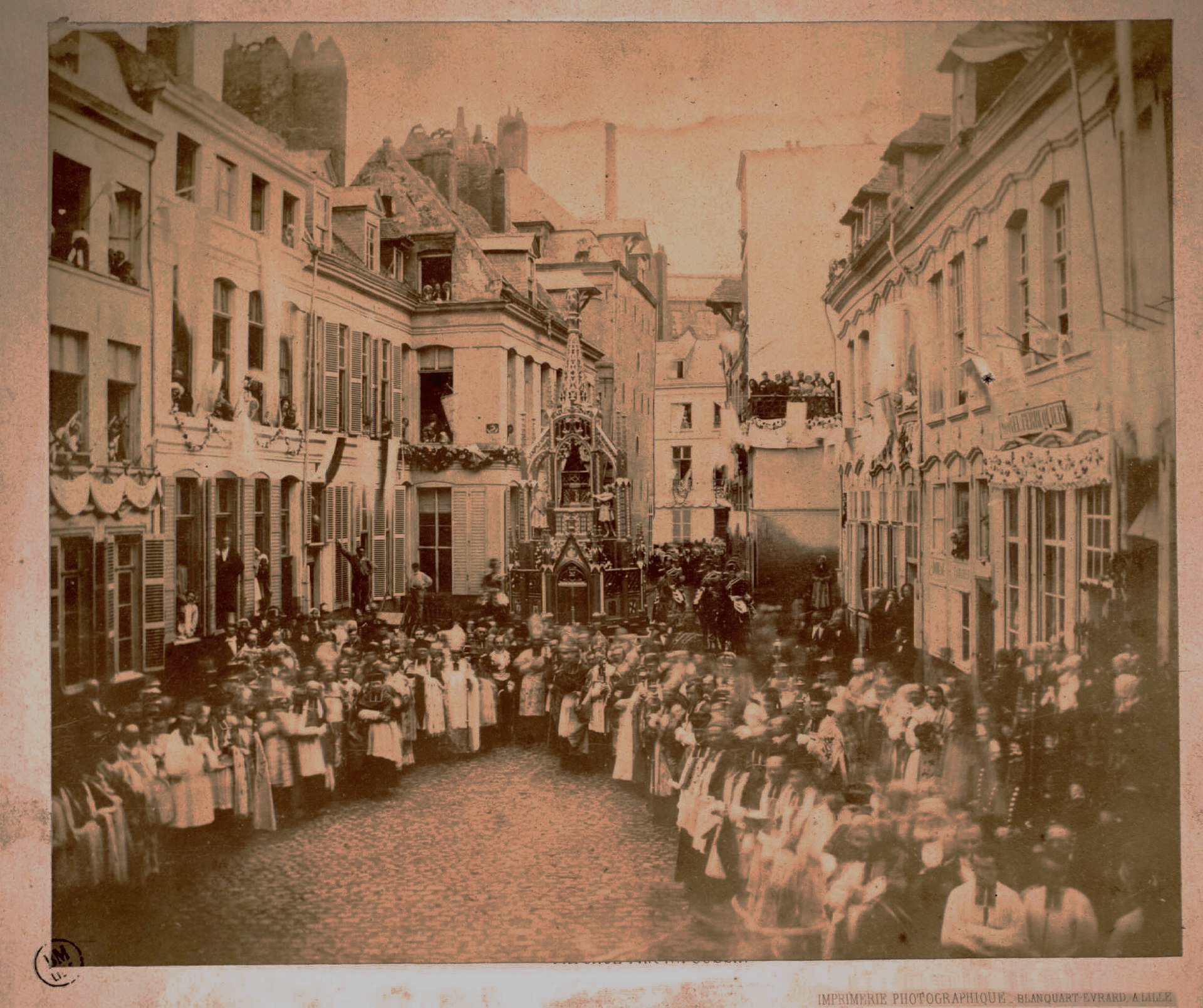Music contests are often organised during the celebrations but also aside from them, resulting in proper fully-fledged events. They would gather the city’s choral societies, brass bands, wind sections, and singer societies.
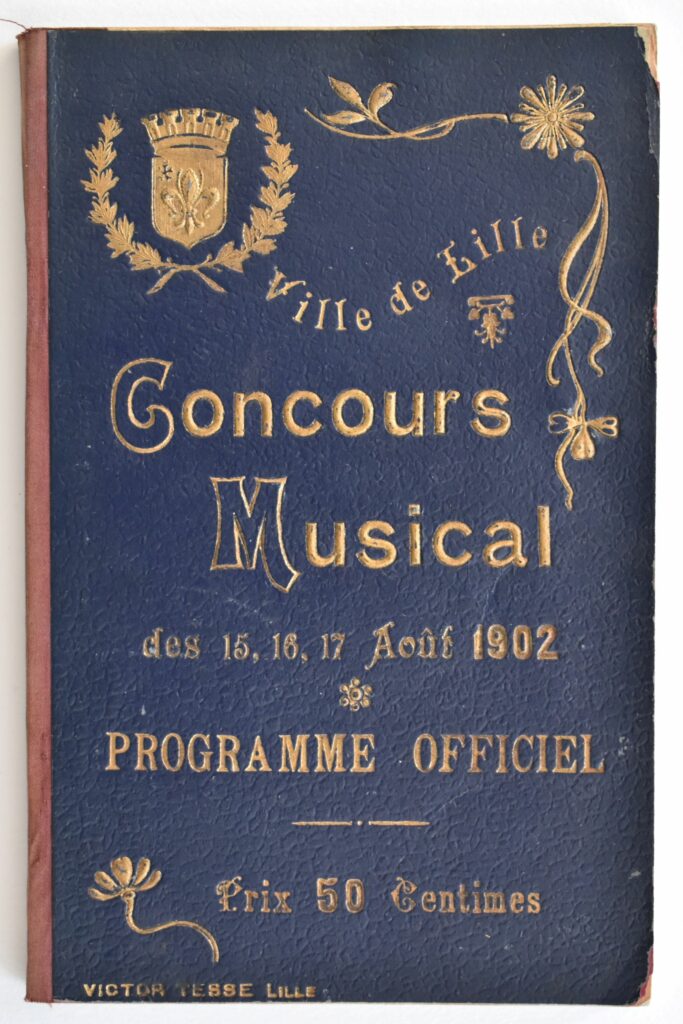
HR8 0394
This programme describes the three days of the contest in 120 detailed pages.
Some of the contests have an international aspiration and gather bands from both the North of France and Belgium. Sight-readings, performance contests, theatrical plays and parades are organised through several days.
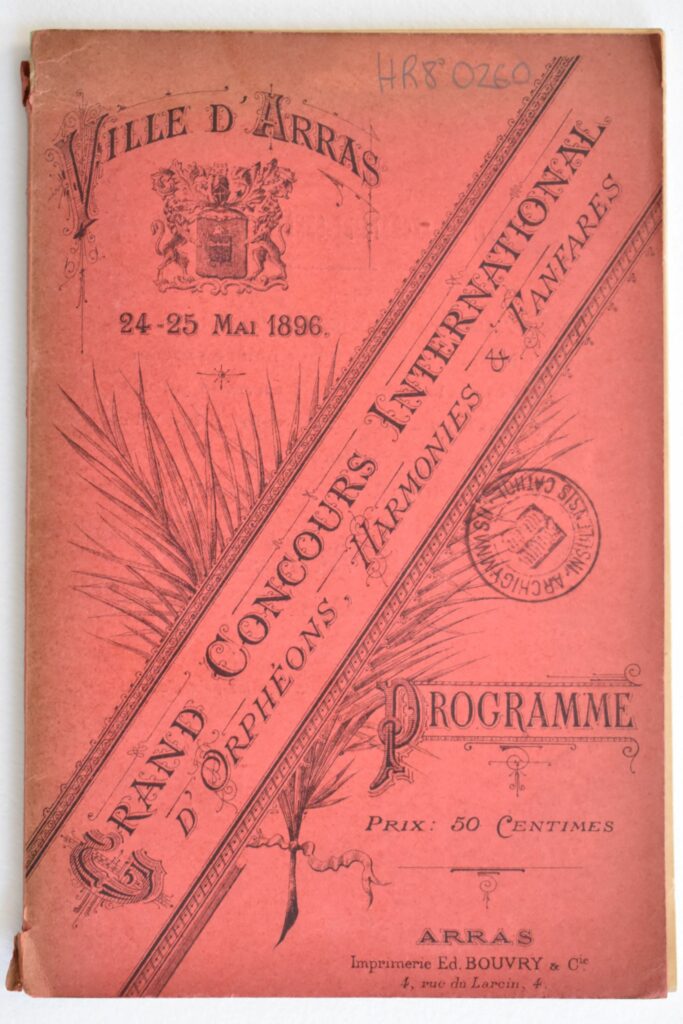
HR8 0260
This programme describes the two days of the contest in 77 detailed pages.
Music societies from the North of France participate in contests outside of their home cities in order to gain fame when they come back victorious. The Crick-Sicks choral society from Tourcoing is a good example. It became famous after winning national and international contests and later performed for emblematic figures such as: The President of the French Republic, Kaiser Wilhelm II… and memorable events, such as the 1924 Olympic Games.
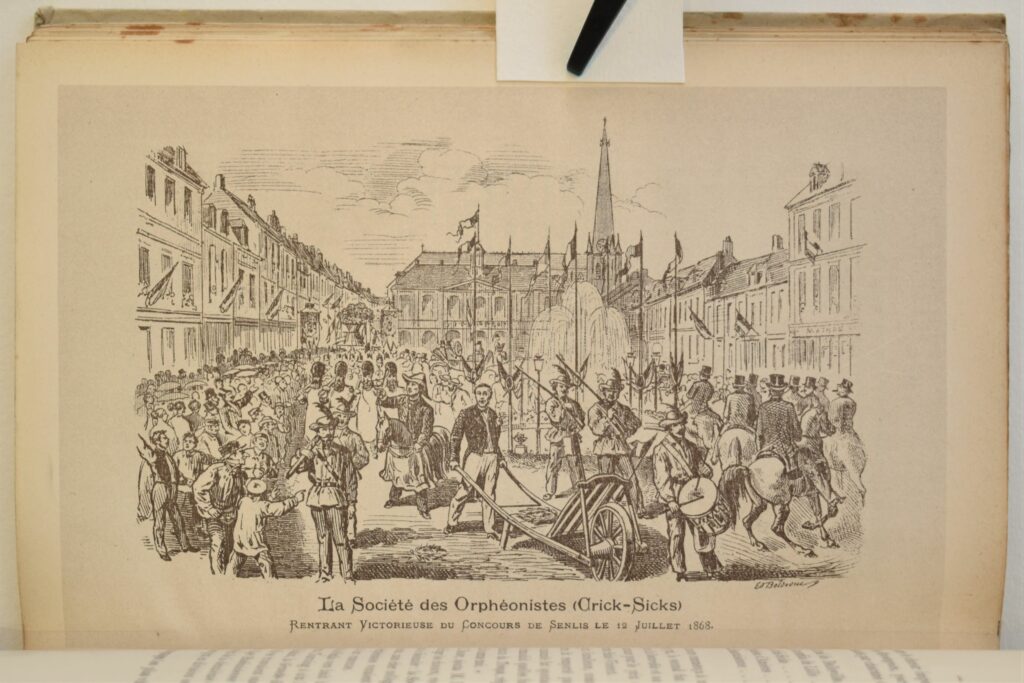
HR8 0086
The Male Voice Choir Society (Crick Sicks) victorious come-back from the Senlis contest on July 12th 1868
The Crick Sicks became a national society, which corresponds to the highest level for musical societies, and it is still active today!
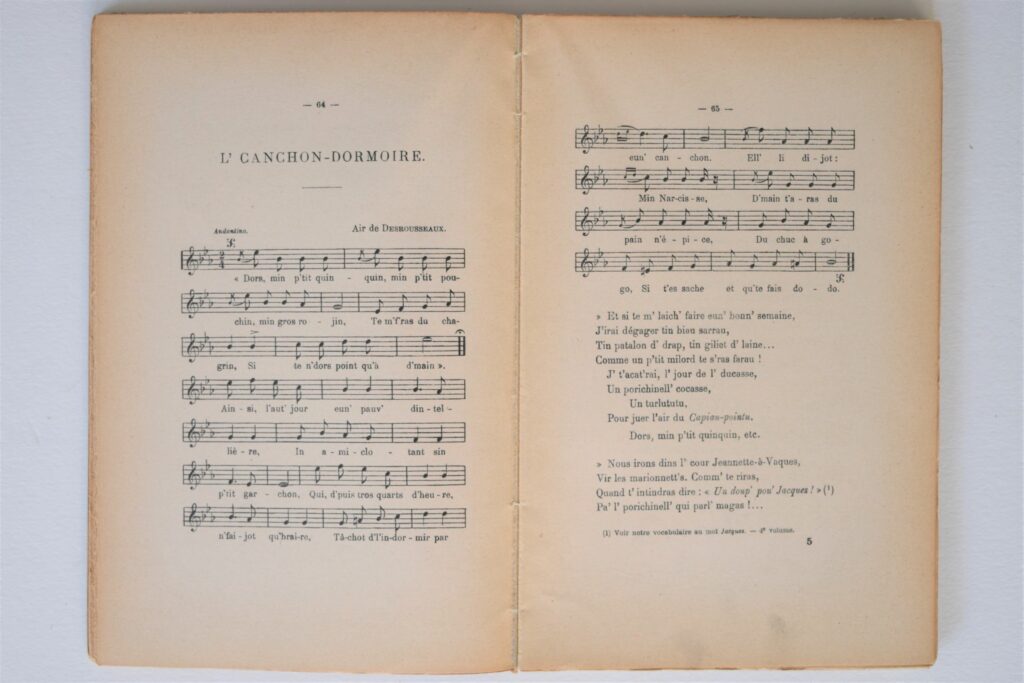
HR12 0330-2.
The music sheet of “L’Canchon Dormoire, ou P’tit Quinquin” by Desrousseaux.
Click here to watch an extract from the Crick Sicks interpretation of “Le P’tit Quinquin”
